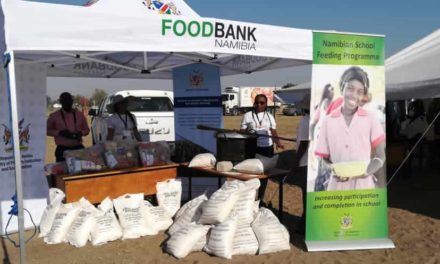
The lack of consensus is a flashing red light signalling uncertainty everywhere
Next week’s edition is dedicated to forecasts and expectations for this year. This is somewhat a
dangerous undertaking. It is also best not left to the views of a single person mostly due to the pervasive uncertainity of where this year will lead us.
The editorial team is asking those that we deem knowledgeable to present us their views as it relates to their sector or industry. What has transpired so far is that there is a wide spectrum of viewpoints and they are at odds on many crucial economic aspects. Until about two years ago, whenever we polled anything from five to twelve individuals, there was consensus among most. The economy is relatively small and not very complicated. This holds true for both the private and the public sector. Also, as we are such a small population, there is substantial lateral interaction between players in very diverse industries. In short, we talk to each other and we do that often so the level of information available of what’s happening in the other guy’s business, is surprisingly high.
Around the middle of 2010, I was visited by a survey team from the World Bank doing their regular country survey and profiling. At that meeting it was quite amazing to encounter the level of consensus amongst the pollers in my office. Even more surprising was when they told me they had the same experience with all their interviewees, only from their side of the table. At that point we were hammered by the financial crisis although the general feeling was that by the end of the year, it will all be over. Then Europe happened and the entire world went into a new round of hovering on the precipice. After the World Bank visit, I was invited by the ifo Institute at the University of Munich to join the World Economic Survey as an expert for Namibia. This is actually quite an amazing experience for a scholar as one becomes part of a group of more than 6000 people worldwide, all expressing their opinions and expectations individually, which is then processed and indexed to produce the quarterly World Economic Survey.
After my second round, I realised that the level of convergence in Africa, in general, is very low. This points primarily to the small number of correspondents in relation to the very large number of experts available in the more advanced economies. But it also points to a rather large divergence among the experts themselves. This fact is actually pointed out and briefly discussed in the published survey results. In other words, for Africa, consensus is basically absent.
I see a similar trend in Europe, the US, and the East. Whereas consensus was usually a mainstream process with very little divergence at the tips of the spectrum, less than 5%, consensus views are now often published based on agreement as low as 40%. In practical terms it means that consensus is no longer consensus in the conventional sense, it merely reflects a majority viewpoint, and not even a very strong majority.
This state of affairs is mirrored locally, but the lack of a uniform view does not stem from wildly divergent expectations, rather its roots are to be found in the fact that everybody who knows something of the economy is too damned scared to voice any opinion. The level of uncertainity is simply too high. And with markets cajoling up and down like crazy horses, it is no wonder.
I am very eager to see the outcome of the various individuals we are asking for a forecast. Even our more stable sectors like agriculture and mining fail to attract a singular point of view. Speaking to many different people during the holidays, it became apparent that this conundrum is shared widely. There are some solid expectations for various developments in mining, but I found just as many people who pointed out that wild swings in commodity prices make reliable planning a difficult exercise. Even our new growth industry – uranium – took a solid beating when the bottom fell out of the uranium bucket. Long-term, I am still convinced uranium is a winner (or rather a necessity) but short and medium term – how does one plan to finance such a capital intensive operation if there is no stability in the commodity price, even for a window as short as six months?
With agriculture it is the same. Despite cattle farmers’ continuous whining about red meat prices, earnings are currently good, and most producers, sort of blindly, believe meat prices can only go up. But, as recent economic history has shown, this is not the case, and the vastly distorted value of farmland in Namibia, which today may seem an attainable, steady long-term investment, may turn out to be a major liability in a semester from now.
Perhaps the single most important factor in making us scared, is the perceived volatility in crude oil prices. As things stand now in the Middle East, there are more factors destabilising crude oil production than stabilising elements. What does this hold for us where every single drop of oil has to be imported?









































